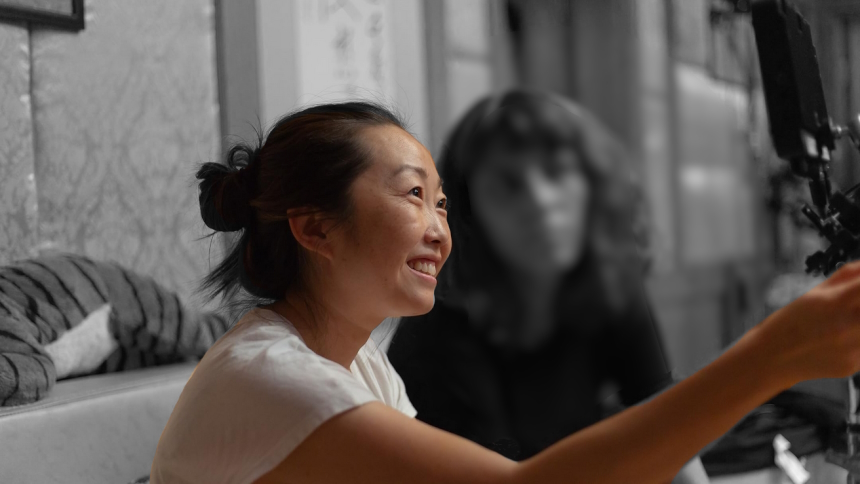Sound And Vision: Lulu Wang

In the article series Sound and Vision we take a look at music videos from notable directors. This week: two music videos for Vintage Trouble directed by Lulu Wang.
The push and pull between authenticity and performativity is central to Lulu Wang's break-out feature The Farewell and her two music videos. In The Farewell a young Chinese-American woman named Billie clashes culturally with her Chinese family who are deliberately leaving her grandma in the dark about grandma's cancer. The Farewell is a story about the search for one's identity authentically. And about the performativity of social niceties and cultural constructs. It is a film that is in its own words "Based on a true lie" as it is a semi-autobiographical film for Lulu Wang. Again a push and pull between reality and fiction.
The two music videos Wang has made for Vintage Trouble have a similar thin line between what is authentic and what is fake. In the first music video for the throwback soul band, for Still And Always Will (below), we see them perform in a church setting, giving a powerhouse performance. The setting feels lived-in and there is only the thinnest of narratives. The nuns working in the church start dancing, being taken over by the narrative. That is the full narrative, and more is not needed. The performance is central, as is the look, a lush black-and-white chiaroscuro. This is a clear homage to the nineties-videos of the likes of David Fincher in its style. Which is where the push and pull between authenticity and performativity comes in. While the performance feels authentic, pulling it away from pure performativity, the pastiche stylings put the music video back firmly in the area of deliberate performativity.
The same is true for the second music video for Nobody Told Me (also below), which is even more clearly a throwback to early nineties music videos, with its stark white backdrops, sepia hues, slick suits and razorsharp editing. This is Wang mastering a style.
Still, playing around with fake versus real is done in a very different way in The Farewell than Wang does here. The juxtaposition of music and imagery lets things rise to the surface in The Farewell. It is the music there that underscores the clash between cultures, putting Western music beneath Chinese cultural practices and vice versa, like in the scene where Billy feels bittersweet about her goodbye being underscored by a hymn sung by a gospel choir. Or using deliberately out of place music to subtly foreshadow emotional developments, like during the wedding karaoke scene that turns emotionally heightened long after the soundtrack had already shifted to an operatic aria. The music in The Farewell is a powertool, drilling the message home, almost shattering the fourth wall at times.
Whereas in the music videos the images are in service of the music. Even though they are a pastiche, they are here to highlight the throwback nature of the music, being highly indebted by Soul and R 'n' B and their nineties revivals. It's a different approach, where there is a symbiotic synergy between image and sound that The Farewell deliberately side-steps. Both end up being authentic and performative at the same time, just in surprisingly different ways.






